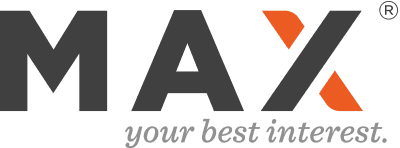Accepting a post in a foreign country? Living and working abroad is an exciting experience, but it can wreak havoc on your finances. Taxes become more complicated when expats are earning income and managing their finances overseas, from the J1 visa tax systems in the United States to all others around the globe. To do something as simple as access your accounts, you may need to move your banking relationships online, since your neighborhood bank may not have a branch in the country where you’re moving.
From my years of living abroad, I developed a few simple tricks to make it easier to manage our family’s finances. Here are 5 ways to keep your finances in order as an expatriate:
1. Sign up for electronic financial statements and payments.
Request that your banks, credit cards, and vendors of all sorts send you account statements and bills in electronic form instead of through the regular mail. It can take too long for mail to reach you overseas, and you could miss payment deadlines or fail to notice red flags in your accounts if you don’t see them in time. Keep the statements organized on your computer and backup the files to the cloud, using a service like DropBox. When it’s time to pay your credit card bills or other invoices, pay electronically, not by mailed check. Your bank’s website will typically let you do this online. In cases where a paper check is required, leading banks like Citibank will allow you to fill out a form on their website and they’ll mail a physical check for you, at no charge.
2. Ask if your bank offers foreign-currency-denominated accounts.
If your home bank has branches in your new country, inquire about what’s involved in using your account once you arrive. Ask if you need to get a new account denominated in your new country’s currency, tied to your existing home account. If this isn’t possible, research local banks by asking other expats based there. Make sure you’ll be able to conduct business with your local bank in English if you don’t speak the local language.
3. Choose your credit cards wisely.
If you don’t want to pay steep fees when you use your credit card in a foreign country, make sure your card allows for free currency translation. One such card is the Platinum Card, from American Express; other cards from Capital One, Citibank, Chase and Barclays offer this service as well. Also check that you’ll be able to redeem whatever loyalty points your main credit card offers — frequent-flyer miles, cash-back points, or hotel nights — while living in your new country.
4. Understand your insurance policy and coverages.
Evaluate your insurance coverage. Your employer will likely provide you with health coverage. Just make certain it has the benefits you need when living and traveling overseas. Check that your homeowner’s insurance policy will cover you while living abroad in a house you’ll likely be renting. If not, or if you’ll be selling your home in the U.S., arrange for renter’s insurance or make sure your employer is covering this for you. This is also a good time to check on your life insurance policy, as certain countries may require a rider or be excluded from coverage.
Many frequent travelers and expats choose to carry medevac insurance, which will fly you to a hospital or even all the way back to the U.S. in the event of a serious medical emergency. Some credit cards offer this benefit to cardholders. Be sure to check the fine print on your card’s policy. It may be worthwhile to arrange for your own private medevac insurance.
5. Use MaxMyInterest.com to manage your cash from overseas.
Expats often keep a lot of cash back in the U.S., with little need for it on a day-to-day basis. Our service, MaxMyInterest.com, works well for expats who want to maximize the interest they earn on this cash while keeping within the FDIC deposit-insurance limits. (In fact, I came up with the idea for Max while living in Asia, trying to manage our finances.)
Once you set up Max by linking online bank accounts to your regular brick-and-mortar checking account, the system works automatically to rebalance your cash as interest rates change, sending it to the banks that pay the highest interest rates. You can access Max from anywhere in the world. All you need to set up a Max account is a U.S. mailing address and tax ID number. Max members are currently earning 0.76% more than the national savings average. The extra interest income earned via Max could translate into an extra sightseeing trip to explore your new home country, or to travel back to the U.S. to visit friends and family.
Gary Zimmerman is the founder of MaxMyInterest.com.

